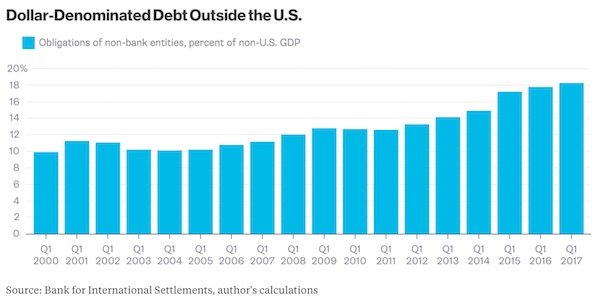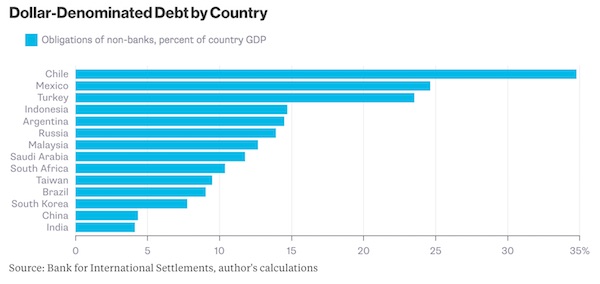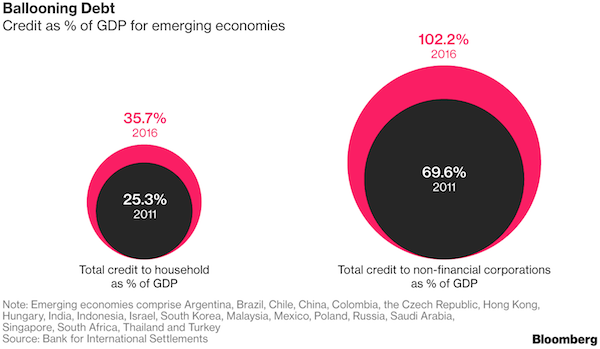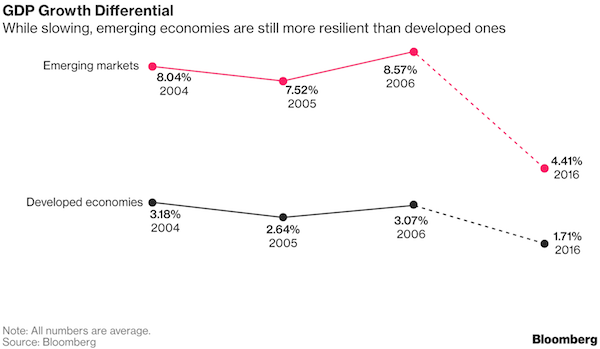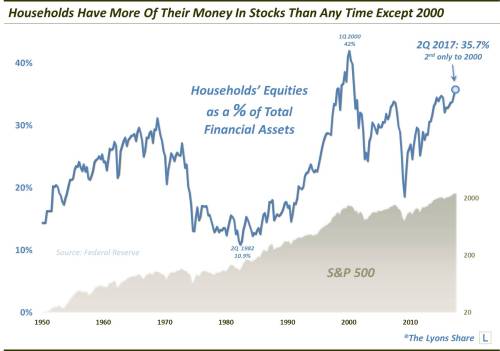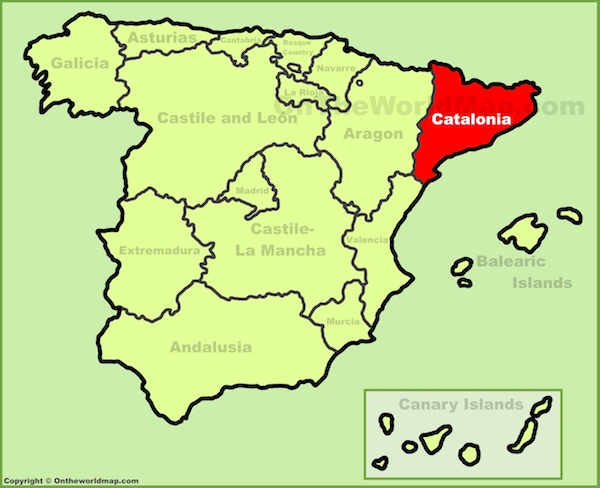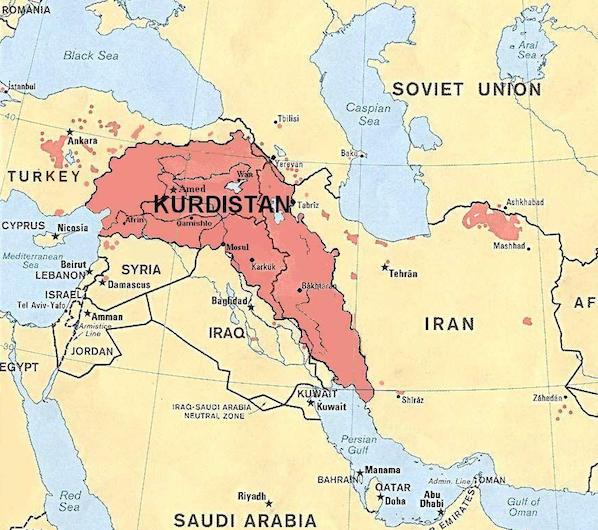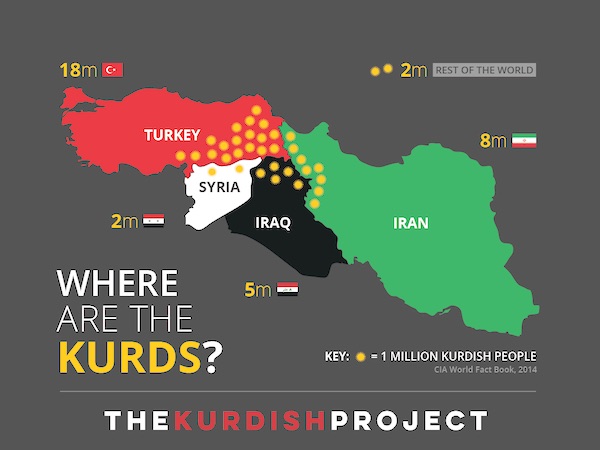
Vincent van Gogh Rispal Restaurant at Asnieres 1887

I’d say be careful what you claim ownership of. Because you break it, you own it
• Obama Claims Ownership Of US Economic Recovery (MW)
Former President Barack Obama on Friday used a speech at the University of Illinois to sharply criticize his successor as well as claim ownership of the U.S. economic recovery. Speaking in Urbana, Ill., where he received an award for ethics in government, Obama recalled that the U.S. economy was losing 800,000 jobs a month when he entered office. “We worked hard to end that crisis but also break some of these longer-term trends,” said Obama, who is planning a series of campaign trips ahead of the midterm elections in November. “By the time I left office, household income was near its all-time high, and the uninsured rate had hit an all-time low and wages were rising,” he said. “I mention all this so when you hear how great the economy is doing right now, let’s just remember when this recovery started.
“I’m glad it’s continued, but when you hear about this economic miracle that’s been going on … I have to kind of remind them, actually those job numbers are kind of the same as they were in 2015 and 2016.” On that, Obama is correct. U.S. job growth averaged 226,000 per month in 2015, 195,000 in 2016, 182,000 in 2017 and, so far this year, 207,000. Data also show a pickup in business and consumer confidence after Trump’s election. The U.S. is on track to grow more than 3% in 2018, a rate of economic expansion not recorded over the course of a full calendar year since the second term of the George W. Bush administration. At a North Dakota event, Trump responded. “Obama was trying to take credit for this incredible thing that’s happening,” Trump said.
“I have to say this to President Obama – if the Dems got in with their agenda in November of almost 2 years ago, instead of having 4.2 up, I believe honestly we’d have 4.2 down,” he said, referring to GDP growth of 4.2% in the second quarter. Obama meanwhile had a broader attack on Trump than just the economy. Mentioning Trump by name, Obama said political division is more manufactured than real. “Sometimes the backlash comes from people who are genuinely, if wrongly, fearful of change. More often it’s manufactured by the powerful and privileged who want to keep us divided and keep us angry and keep up cynical because it helps them maintain the status quo and keep their power and keep their privilege,” he said. “And you happen to be coming of age during one of those moments. It did not start with Donald Trump. He is a symptom, not the cause,” Obama said to applause.

And these ownership claims are easy to argue.
• Trump Has Set Economic Growth On Fire. Here Is How He Did It (CNBC)
President Donald Trump is more than 19 months into an administration engulfed in so much controversy that it may overshadow a tremendous achievement, namely an economic boom uniquely his. During his time in office, the economy has achieved feats most experts thought impossible. GDP is growing at a 3 percent-plus rate. The unemployment rate is near a 50-year low. Meanwhile, the stock market has jumped 27 percent amid a surge in corporate profits. Friday brought another round of good news: Nonfarm payrolls rose by a better-than-expected 201,000 and wages, the last missing piece of the economic recovery, increased by 2.9 percent year over year to the highest level since April 2009.
That made it the best gain since the recession ended in June 2009. His critics, a group that includes a legion of Wall Street economists, most Democrats and even some in his own Republican Party, don’t believe it will last. They figure the current boom will begin petering out as soon as mid-2019 and possibly end in recession in 2020. But even they acknowledge that the current numbers are a uniquely Trumpian achievement and not owed to policies already set in motion when he took office. “I still believe the big story this year is an economic boom that most folks thought impossible,” Larry Kudlow, director of the National Economic Council and a chief advisor to Trump, said in a recent interview with CNBC.com. “I understand that he’s been in for a year and a half, but when you look at those numbers, this is not going away.”
Indeed, the economy does seem to be on fire, and it’s fairly easy to draw a straight line from Trump’s policies to the current trends. Business confidence is soaring, in part thanks to a softer regulatory environment. Consumer sentiment by one measure is at its highest level in 18 years. Corporate profits, owed in good part to last year’s tax cuts, are coming close to setting records.

May will have to bend a lot.
• May Urged To Ignore ‘Three Stooges’ In Brexit Negotiations (G.)
An EU commissioner has likened Boris Johnson, Jacob Rees-Mogg and Nigel Farage to the “Three Stooges” and issued a stern warning to Theresa May that there would be no Brexit deal next March if she insisted on sticking to her Chequers proposal. In a speech in Ireland on Friday, Phil Hogan said the EU would fight to the end to preserve the union of nations that has stood for the past 60 years. He said Brussels would not allow the bloc to be damaged just to save the UK “from its own silliness” and reiterated the EU position that the four freedoms forming the bedrock of the union were not negotiable. He said the only room for a special deal on deviating from the four freedoms would be in relation to Northern Ireland.
“The EU’s first offer, reflexively rejected, was a significant departure from our internal market policy. And it was meant for Northern Ireland only. It was that Northern Ireland could remain in the single market with the EU27,” he said. Instead of accepting that offer, the UK’s reply, he said, was “‘Let’s restrict the single market to goods and generalise it for the whole UK.’ The EU’s answer has already been given: no. “If the UK attitude is Chequers and only Chequers, there will be no agreement before March next year on the future trade relationship,” he said. He said that if May could not progress the UK’s position then the EU’s offer on a future trade deal would be the one it put forward months ago, “essentially a Canada-type trade arrangement”. He added: “There is nothing new in this. Each time she is asked about her red lines, the prime minister repeats them, making a Canada-type trade deal more likely.

Curious development. Trying to make it look like it never happened?
• Cohen Seeks To Vacate Hush-Money Deal With Stormy Daniels (Hill)
Michael Cohen’s shell company has reportedly moved to vacate a 2016 nondisclosure agreement with adult-film star Stormy Daniels, requesting that she return the $130,000 she received as part of the deal. Cohen’s lawyer Brent Blakely said Friday that California law requires Daniels to return the money that Cohen paid her in 2016 to stay quiet about her alleged affair with President Trump in 2006, CNN reports. “Today, Essential Consultants LLC and Michael Cohen have effectively put an end to the lawsuits filed against them by Stephanie Clifford aka Stormy Daniels,” Blakely told CNN.
“The rescission of the Confidential Settlement Agreement will result in Ms. Clifford returning to Essential Consultants the $130,000 she received in consideration, as required by California law,” he added. A source familiar with Cohen’s thinking told the network that Cohen no longer benefits from Daniels’s promise to keep quiet about the affair. The existence of the deal, and Daniels’s alleged affair, were reported by The Wall Street Journal originally in January, while Daniels has been outspoken about her allegations since then. Michael Avenatti, the attorney representing Daniels in her defamation case against Cohen and Trump over their denials of the alleged affair, told CNN that the move was likely made in an attempt to protect Trump from being deposed.
“I haven’t had a chance to digest it, I just saw it on my email literally right before I came on,” Avenatti told CNN. “What they’re trying to do is they don’t want me to get a chance to depose Michael Cohen and Donald Trump,” he added. “This is a hail mary to try and avoid that, that’s my first guess.” Avenatti added in a tweet Friday night that Cohen “is back to playing games and trying to protect Donald Trump.” “He is now pulling a legal stunt to try and ‘fix it’ so that we can’t depose Trump and present evidence to the American people about what happened. He is not a hero nor a patriot. He deserves what he gets,” the attorney added.

If Mueller et al had a sense of decency, they’d have let him go on “Time Served”. All they’ve proven is that Papadopoulos is indeed a nobody. BTW, rumor has it that Joseph Mifsud is dead.
• Papadopoulos Sentenced To 14 Days In Prison For Lying To FBI (ES)
President Trump’s former campaign adviser George Papadopoulos has been sentenced to 14 days in prison for lying to the FBI. He is the first former campaign aide to be sentenced in special counsel Robert Mueller’s Russian investigation. In October 2017, he pled guilty to one count of lying to FBI agents about the nature of his interactions with “foreign nationals” who he thought had close connections to senior government officials. Mr Papadopoulos was a member of the campaign’s foreign policy team, but Trump aides have said he played a limited role in the campaign and had no access to the candidate.
Court papers revealed that Mr Papadopoulos was told about the Russians possessing “dirt” on Democrat Hillary Clinton in the form of “thousands of emails” on April 26 2016, well before it became public that the Democratic National Committee and Clinton campaign chairman John Podesta’s emails had been hacked. The interactions at the centre of the case included speaking with Russian intermediaries who were attempting to line up a meeting between Mr Trump and Russian President Vladimir Putin and offering “dirt” on Mrs Clinton. During the trial, Mr Papadopoulos apologised for his actions, telling a judge that he had made a “dreadful mistake” and was eager for redemption.

See, Papadopoulos gets jailed for lying to the FBI (about nothing). Now, former FBI Deputy Director Andrew McCabe lied 4x, twide under oath, about leaking FBI info to the press. Which is worse? And if this concerns the FBI so much, how come Mueller, ex-FBI head, conducts the investigation?
• Secret Grand Jury Proceedings Underway Against Andrew McCabe (ZH)
Federal prosecutors have been using a grand jury over the last several months to investigate former FBI Deputy Director Andrew McCabe, reports the Washington Post, citing two people familiar with the matter. What’s more, the grand jury has summoned at least two witnesses, and the case is ongoing according to WaPo’s sources. “The presence of the grand jury shows prosecutors are treating the matter seriously, locking in the accounts of witnesses who might later have to testify at a trial. But such panels are sometimes used only as investigative tools, and it remains unclear if McCabe will ultimately be charged.” -Washington Post
McCabe was fired on March 16 after Justice Department Inspector General Michael Horowitz issued a criminal referral following a months-long probe, which found that McCabe lied four times, including twice under oath, about authorizing a self-serving leak to the press. Horowitz found that McCabe “had made an unauthorized disclosure to the news media and lacked candor – including under oath – on multiple occasions.” Specifically, McCabe was fired for lying about authorizing an F.B.I. spokesman and attorney to tell Devlin Barrett of the Wall St. Journal – just days before the 2016 election, that the FBI had not put the brakes on a separate investigation into the Clinton Foundation, at a time in which McCabe was coming under fire for his wife taking a $467,500 campaign contribution from Clinton proxy pal, Terry McAuliffe.
In order to deal with his legal woes, McCabe set up a GoFundMe “legal defense fund” which stopped accepting donations, after support for the fired bureaucrat took in over half a million dollars – roughly $100,000 more than his wife’s campaign took from McAuliffe as McCabe’s office was investigating Clinton and her infamous charities.

Let’s go through all the apps. And through all Twitter accounts. I understand Hamas and Ahmadinejad still operate.
• Apple Bans Alex Jones App For ‘Objectionable Content’ (R.)
Apple said on Friday that it had banned from its App Store the Infowars app belonging to popular U.S. conspiracy theorist Alex Jones after finding that it had violated the company’s rules against “objectionable content”. The move makes Apple the latest tech company or social media platform to take action against Jones, a deeply controversial right-wing radio talk-show host who has suggested that the 2012 Sandy Hook massacre was a hoax, among other sensational claims. Apple said the guidelines Jones violated bar “defamatory, discriminatory, or mean-spirited content, including references or commentary about religion, race, sexual orientation, gender, national/ethnic origin, or other targeted groups, particularly if the app is likely to humiliate, intimidate, or place a targeted individual or group in harm’s way.”
Representatives for Jones could not immediately be reached for comment by Reuters on Friday evening. On Thursday, Twitter Inc permanently banned Jones and his website from its platform and Periscope, saying in a tweet that the accounts had violated its behavior policies. In a video posted on the Infowars website on Thursday, Jones said in response: “I was taken down not because we lied but because we tell the truth and because we were popular.” Last month, Twitter banned Jones and Infowars for seven days, citing tweets that it said violated the company’s rules against abusive behavior, which state that a user may not engage in targeted harassment of someone or incite other people to do so.
Apple said at the time that the Infowars app remained in its store because it had not been found to be in violation of any content policies, although it had removed access to some podcasts by Jones. The podcasts differ from the Infowars app by allowing access to an extensive list of previous episodes, subjecting all of those past episodes to Apple’s content rules.

Oh well, just blame America.
• Erdogan Legacy Construction Projects Stall In Turkish Financial Crisis (Ind.)
Turkey’s financial meltdown has brought the country’s years-long construction boom screeching to a halt, with even some of President Recep Tayyip Erdogan’s favourite projects being suspended or scaled back amid a cash crunch and debt woes. In recent weeks, worried murmurs about stalled projects among developers and ordinary Turks about dormant construction sites and half-finished buildings left untouched for months have reached a crescendo. This week local news outlets reported that a key transport project in Istanbul, the Kabatas ferry terminal connecting the city’s European and Asian sides of Turkey’s commercial capital, would be scaled back.
Across the country, experts say construction sites have gone dormant, projects suspended or delayed. The construction cranes remain in place, but the work has stopped. “The huge companies that do fancy infrastructure projects – they don’t have any money,” said one developer who is well-connected to official circles. “The government has a spending freeze. They’re going to reconsider all the projects and reprioritise.” Mr Erdogan, a former mayor of Istanbul, built his reputation and electoral popularity on undertaking gigantic public works projects like mosques, airports, and bridges, as well as facilitating big private sector projects that included showy housing complexes, glittery office towers, and shopping malls packed with Turkish and international retail brands.
But the miracle was built on cheap credit from abroad, which has now dried up in a climate of rising US interest rates and doubts about Turkey’s economic health. And financial experts, developers, and bankers say many of Turkey’s projects – including the 45km Istanbul canal connecting the Black Sea to the Sea of Marmara that even Mr Erdogan himself called “crazy” – are now in doubt. “The Istanbul Canal is almost impossible,” said Atilla Yesilada, an economist and consultant. “Because no one wants to lend to Turkey now.”

A caravan of grand jury’s.
• Slouching Toward Okeefenoke (Kunstler)
There is now a clear evidence trail about eight-lanes wide detailing Russian collusion of the Democratic Party, the Hillary Campaign, the FBI / DOJ, plus a caravan of Robert Mueller aides, adjuncts, colleagues and former trainees. They are all mixed up with a cavalcade of events weaving through more than one Clinton investigation (and its damage control operations), and they need to appear before grand juries too. Many, I suspect are criminally culpable and will end up in the slammer. Perhaps even ole Horse-face himself, grave and aseptic as he may seem.
I’ve caught two of Trump’s rallies the past week or so. His freestyling babble at the podium makes me wish I could wave a magic wand and just make him vanish in a cloud of orange vapor, or perhaps turn him into Richard Nixon. (Doesn’t all this make you nostalgic for ole Nixie?) He can’t shut up about the economic miracles that he has wrought with his mighty “stable genius” brain. Perhaps he has not noticed that the money system is crumbling all around the world at the margins. If he does not understand that this rot eventually must reach the center, then he has washed down too many cheeseburgers with his own Kool Aid.
Having taken ownership of all this lock, stock, and barrel, then he is perfectly situated to be blamed when the honey-wagon of algo trading robots turns south and whatever remains of the world’s hot money, including the US dollar, goes up in smoke. If it coincides even bluntly with the mid-term election, then we will find ourselves living through Civil War Two.

2 Russian secret agents who make sure they get photographed by 5-6 different camera’s. Yeah.
• Russia Asks Britain For Help In Identifying Novichok Suspects (G.)
Moscow has claimed it wants to ascertain as soon as possible the identities of the two men named by Britain as suspects in the nerve agent attack on a former Russian spy in Salisbury, and has asked London to help. “We need to establish who these people are, if these are [Russian] citizens or not,” said Maria Zakharova, the foreign ministry spokeswoman on Friday. “We want to do this with maximum haste and effectiveness, and so we are again appealing to Britain for help in ascertaining the identities of these people.” Britain announced charges in absentia on Wednesday against two men believed to be officers with Russia’s military intelligence service, known as the GRU.
Theresa May said the men flew into Britain in March to try to murder Sergei Skripal, a former GRU officer who sold secrets to MI6, and accused the Russian government of orchestrating the operation. Scotland Yard said the alleged secret agents travelled to Britain under the names of Alexander Petrov and Ruslan Boshirov, which were probably aliases. The Kremlin has described the allegations as unacceptable and denies that any Russian officials were involved. Zakharova also accused May of a “frank lie” over her claims that Russia had not offered Britain information after the nerve agent attack, and suggested that May had “selective access” to Russian media reports. Dmitry Peskov, a spokesman for Vladimir Putin, said on Thursday that Russia would not investigate the two suspects because it had not received a formal request for legal assistance from Britain.
Zakharova’s comments came as a purported ex-GRU officer claimed the attempted murder was too amateurish to have been the work of professional secret service agents. If GRU agents had wanted to target Skripal, they would have done it “quietly, without fuss, and brought him [to Russia] in a mail bag, and no one would have known where he had gone,” Ivan Tarasov told Russia’s Komsomolskaya Pravda newspaper. Tarasov also claimed the Skripals could have been targeted by a Russian crime gang, possibly over unpaid debts, and mocked reports that the suspects stayed in the same room in a cheap hotel near Salisbury. “That’s how bandits act, not professional secret service officers. GRU officers don’t stay in London hotels,” he said.

I don’t care about Nike. But I do care about Kaepernick. See, if there’s one thing wrong here that proves him right, it’s that only black people come out in support of him. Where are his white colleagues, white athletes in general? Why only Tiger, Serena and LeBron?
The world he’s protesting is the one that is killing black kids. His protest started under the first black US president. So did Black Lives matter. So where is Obama on the issue? Why doesn’t he stand with Kaepernick?
• Nike Online Sales Jump 31% After Company Unveiled Kaepernick Campaign (MW)
Talk of Nike Inc. sales taking a hit from the company’s decision to put ex–NFL player Colin Kaepernick at the center of its latest “Just Do It” campaign is looking overblown, based on data from a Silicon Valley digital commerce research company. After an initial dip immediately after the news broke, Nike’s online sales actually grew 31% from the Sunday of Labor Day weekend through Tuesday, as compared with a 17% gain recorded for the same period of 2017, according to San Francisco–based Edison Trends. “There was speculation that the Nike/Kaepernick campaign would lead to a drop in sales, but our data over the last week does not support that theory,” said Hetal Pandya, co-founder of Edison Trends.
Nike’s stock has also held up after its initial slump. The stock was up 1% on Friday and remains in the black for the month. It has gained 29% in 2018, while the Dow Jones Industrial Average DJIA, which since 2013 has counted Nike as a member, has gained 5%, as the S&P 500 index has risen about 8%. The news generated plenty of online buzz, with social engagement around Nike and Kaepernick rising sharply this week, according to 4C Insights, a marketing technology company. Mentions of and comments about Nike on social-media platforms rose 1,678% on Sunday and Monday, according to 4C data. Mentions of Kaepernick spiked 362,280%, the data showed.



